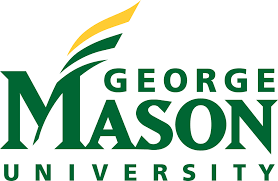Kim McNally Makes History as George Mason’s First PhD in Public Health
By training the future public health workforce, including epidemiologists, nurses, nutritionists, health administrators, and social workers, George Mason’s College of Public Health—the first in Virginia—helps reduce the public health worker shortage, and its students and graduates help individuals and communities get healthy and stay healthy. Since the PhD program’s inception, the college has accepted 27 students.
After receiving her bachelor’s in social work from Rutgers University, McNally went to work in child protective services, ultimately deciding it was not for her. She went back to school, earning her bachelor’s in nursing and master’s in nursing education from Western Carolina University. After a year working in a hospital, she realized her love of public health, which led to her applying to George Mason’s brand-new PhD program in public health. McNally successfully defended her dissertation on April.
Throughout her studies, McNally continued to work full time as a school nurse in various school systems; her current position as a school health nurse in Fairfax County has been instrumental to her research.
McNally’s primary research during her PhD was looking at ways to improve HPV vaccine compliance, particularly among seventh graders. In fact, it was this goal that led her to getting her PhD in the first place:
“I really wanted to jump right in and do an intervention. But then I had to take a step back when I realized that we didn’t have the research to support developing one intervention over another. And so that’s where it started. [It] was just looking at a way to empower school nurses in particular,” said McNally.
As for what she plans to do now that she’s completed her degree, McNally still isn’t sure.
“I love my job,” she said. “It’s an amazing job. I work with amazing people so I would love to stay in school health.”
However, she also would like to work with schools and the health department to support school health nurses because the one thing she has heard over and over again is that school nurses are overburdened.
McNally is also very passionate about mobile health clinics. She says in the years she has been working in schools in Northern Virginia, she has never seen a mobile health clinic on a registration day or during an open house that offered the HPV vaccine and other immunizations required by Virginia state law for students in public schools.
As she looks toward Commencement this May, McNally said she couldn’t have reached her goals without George Mason and her mentors. McNally’s family, mentors, and well-wishers from the College of Public Health were in attendance as she defended her dissertation.
“Dr. [Amira] Roess [professor of Global Health and Epidemiology] has been my faculty mentor since day one and she’s been really amazing, really supportive. Guiding when guiding was needed but also letting me grow on my own,” McNally said.
She also took inspiration from her mentor Ali Weinstein, a professor in the Department of Global and Community Health, and how well she balanced the research aspect with the people aspect.
“We definitely need numbers and rates, but we also need to understand why people choose to vaccinate or choose not to vaccinate. I do feel like it definitely prepared me for my future goals,” McNally said.
“I’m excited to see how Kim will continue to impact the fields of school nursing and public health,” said Roess. “She is a terrific role model for our current and future doctoral students.”
Adds Weinstein: “Her work is impactful and meaningful because of the combination of practical knowledge that highlighted a gap in public health practice.”

